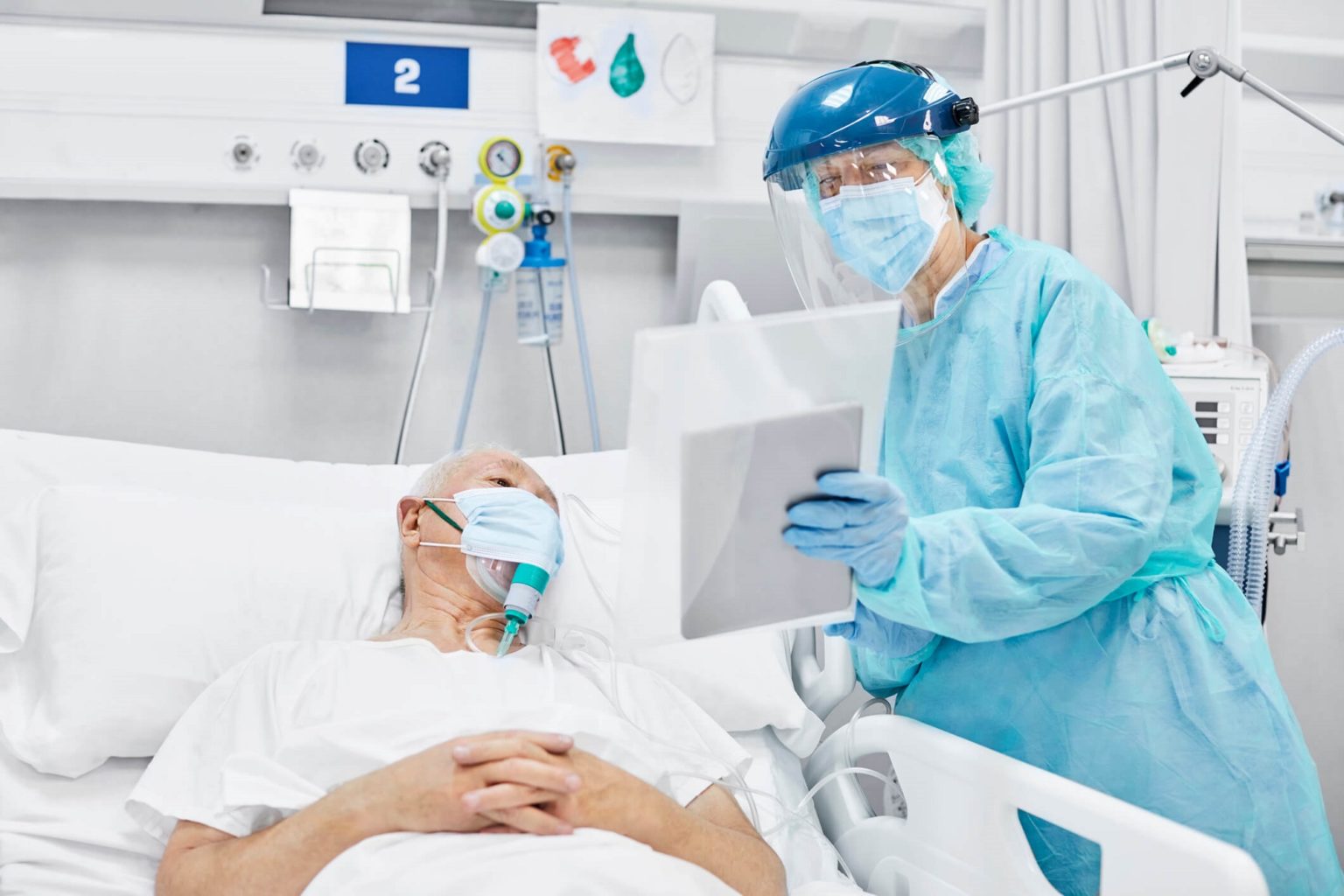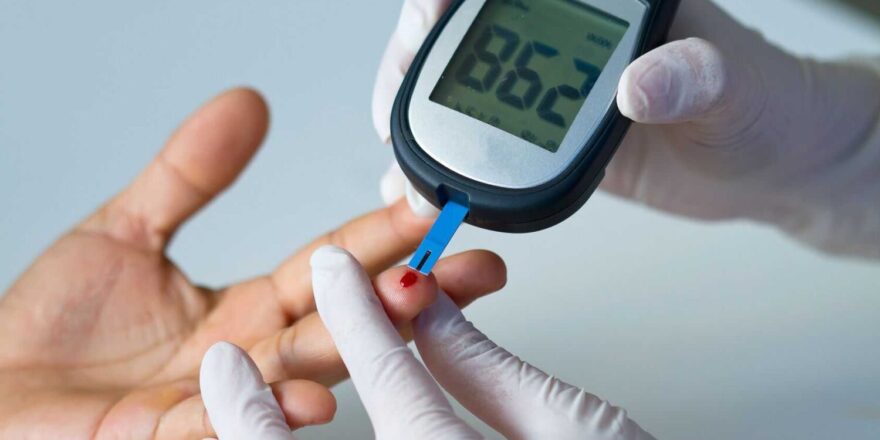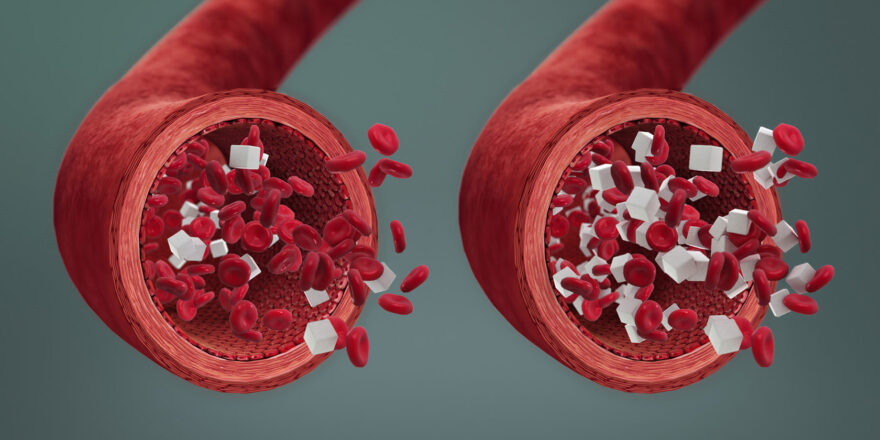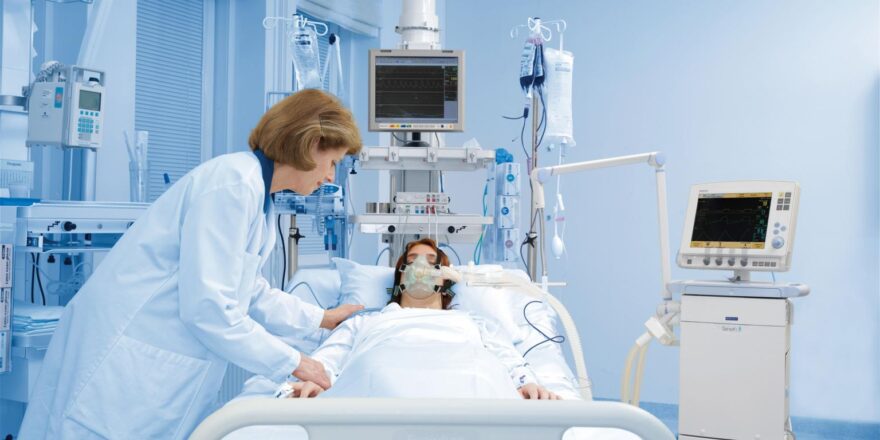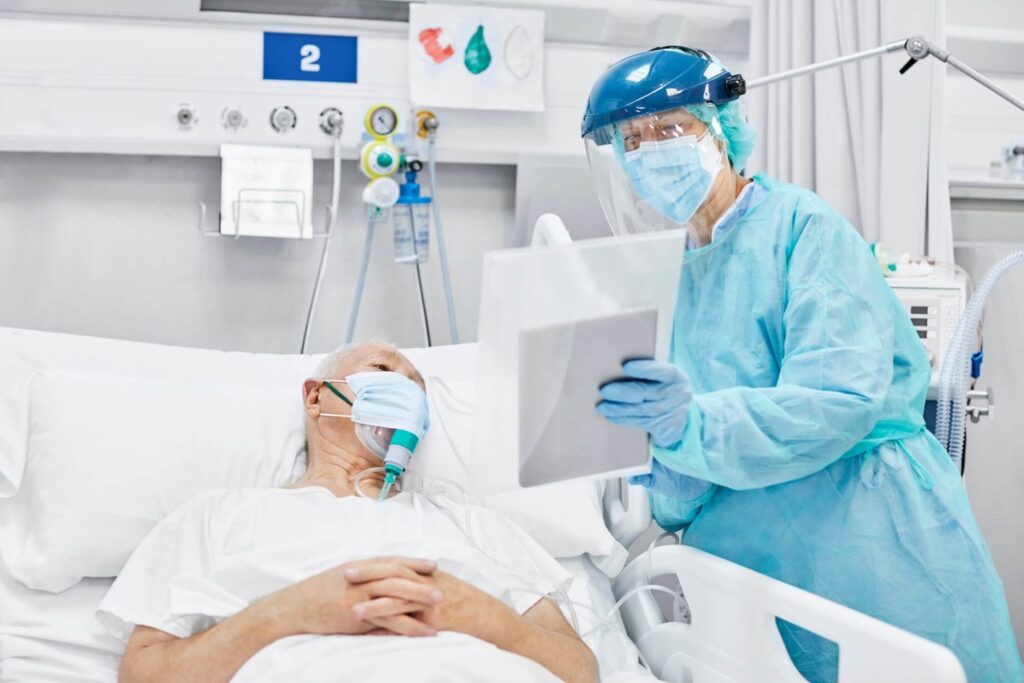


Despite the benefits of providing early enteral nutrition (EN) and parenteral nutrition (PN) to critically ill COVID-19 patients, many physicians remain reluctant to do so, according to a survey highlighted at the American Society for Parenteral and Enteral Nutrition (ASPEN) 2022 Nutrition Science and Practice Conference.
Beth Taylor, DCN, a research scientist at Barnes-Jewish Hospital in St. Louis, and her colleagues surveyed 199 physicians and dietitians about their COVID-19 ICU nutrition practices and found that only 9% thought they had met their patients’ energy and protein requirements.
However, this feeding shortfall “was not a result of patients not absorbing nutrients; it was due to the fact that they were not being fed” for a number of reasons, Dr. Taylor noted.
For example, 75% of respondents said they could not meet their patients’ nutritional needs because the course of their illness was unpredictable and uncertain. Even patients who “seemed to be stable” and were given “some nutrition support suddenly underwent an abrupt and profound deterioration, leading to excessive deficits of energy and protein,” she said. When this happens, the impulse is to remove enteral feeds, but she said that instead, the nutrition should be adjusted accordingly.
Much of the reluctance to use PN is linked to concerns that doing so will worsen outcomes. But as a large randomized controlled trial conducted in the pre–COVID-19 era found, there is no difference in the risk for infection or other complications between early EN and early PN in ICU patients with sepsis (Lancet 2018;391[10116]:133-143), according to Dr. Taylor.
“There are significant misconceptions or personal biases about the risks and benefits associated with use of PN, such as concern about hyperglycemia, which we have learned to manage by not providing excessive calories and practicing early glycemic control,” Dr. Taylor said. “We need to address these beliefs and prejudices and encourage aggressive EN and earlier use of supplemental PN.”
She stressed that “a more methodical approach to nutrition support for COVID-19 patients in the ICU” is needed, along with “updated consensus guidelines on nutrition management to ensure optimal care.”
Given the pressures of the ongoing pandemic, Dr. Taylor acknowledged, this is no easy task. “Since the very beginning of the COVID-19 pandemic, we have had to roll with the punches and learn as we go as to how to best treat our COVID-19 patients in the ICU,” she said.
During those early days, Dr. Taylor and her colleagues realized that COVID-19 patients may require nutritional assistance soon after being admitted to the ICU. “With this virus, the disease process can last a long time, so we need to think about supplemental parenteral nutrition earlier than we normally would in patients who might have a shorter course of illness,” she said.
Indeed, recommendations published in early 2020 (J Parenter Enteral Nutr 2020;44[7]:1174-1184)—and updates issued since then—urge that EN be started within 24 to 36 hours of ICU admission and PN be administered immediately if EN is not tolerated. Those guide-lines reflect what is known about the importance of early nutrition in the ICU population, where the strategy can reduce the risk for death by up to 55%, compared with when EN is delayed (Crit Care Med 2018;46[7]:1049-1056).



